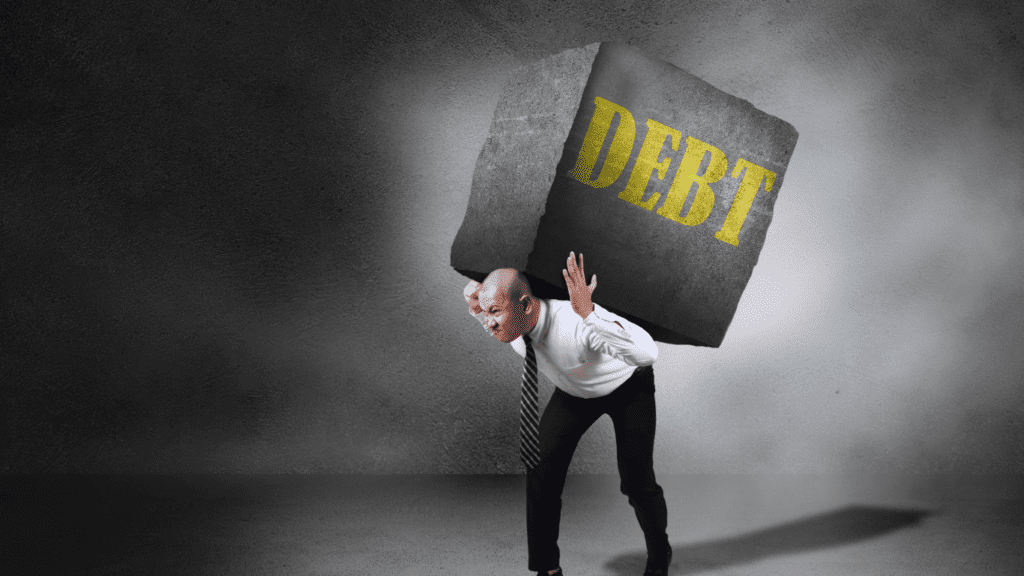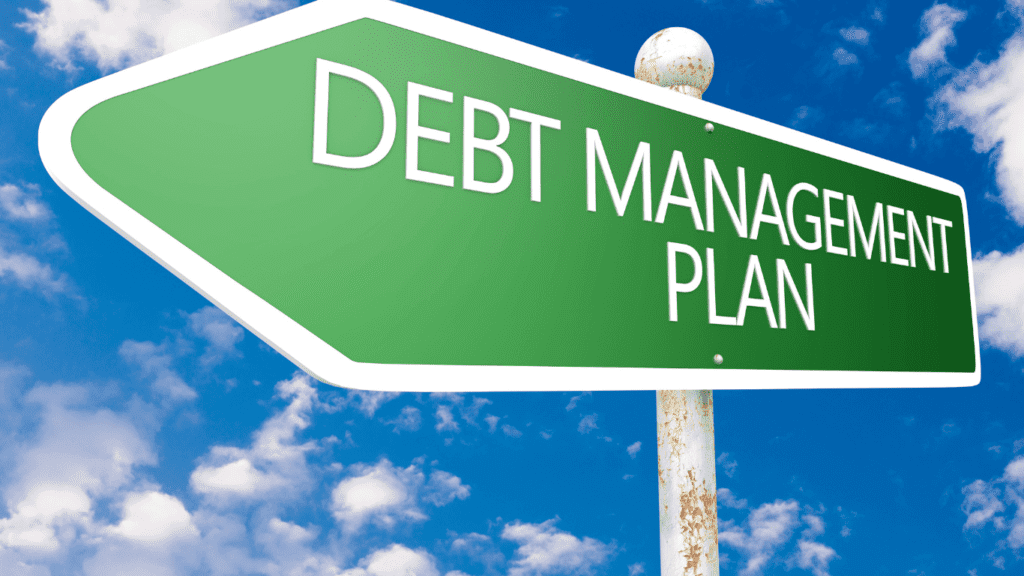Well, folks, let’s face it—debt’s a tricky beast! So, you’ve found yourself in a financial pickle, and it feels like you’re caught between a rock and a hard place. Sigh, hasn’t that been the story of so many of us? But, before you throw in the towel, let me tell you, there’s a silver lining.
Wading through the muck of debt solutions can make your head spin, right? Well, fear not! In this article, Your Path Out of Debt: How to Choose the Best Solution, will be your guiding light. Think of it as a compass, leading you through the financial fog. But, hey, no spoilers! Dive in and let’s cut through the chase, shall we?
Remember, every cloud has a silver lining—even this debt dilemma of yours! So, are you in? Let’s get to the bottom of this together. Onward!
Your Path Out of Debt: How to Choose the Best Solution

Introduction
Debt can be a heavy burden that weighs down individuals and families, causing stress, anxiety, and financial instability. The debt dilemma is a common challenge faced by many, but finding the right solution can help alleviate the strain and pave the way toward financial freedom. In this article, we will explore different debt solutions, evaluate their pros and cons, and provide guidance on how to choose the right one for your specific needs.
Understanding the Debt Dilemma
What is the Debt Dilemma?
The debt dilemma refers to the challenging situation of owing money that is difficult to repay. It often arises when individuals accumulate debt beyond their means, leading to financial hardships and emotional distress. Understanding the root causes and impact of the debt dilemma is crucial in finding the appropriate solution.
The Impact of Debt on Individuals and Families
Debt can have a profound impact on individuals and families, both financially and emotionally. It can restrict their ability to save, invest, and achieve long-term goals. Moreover, the constant stress and worry associated with debt can strain relationships and negatively affect mental well-being.
Common Sources of Debt
Debt can arise from various sources, including credit cards, personal loans, medical bills, student loans, and mortgages. Identifying the specific sources of debt can help in choosing the most suitable solution.
The Emotional Toll of Debt
Debt not only takes a financial toll but also has emotional ramifications. It can lead to feelings of shame, guilt, and hopelessness. Recognizing and addressing these emotional challenges is essential in navigating the debt dilemma.

Evaluating Different Debt Solutions
Budgeting and Financial Planning
One of the primary steps in overcoming the debt dilemma is effective budgeting and financial planning. Creating a realistic budget, tracking expenses, and prioritizing debt repayments can help individuals regain control over their finances.
Debt Consolidation
Debt consolidation involves combining multiple debts into a single loan with a lower interest rate. This can simplify debt management and reduce monthly payments, making it easier to repay the debt over time.
Debt Settlement
Debt settlement involves negotiating with creditors to settle the debt for less than the total amount owed. This option is suitable for individuals facing severe financial hardships who are unable to repay the full amount.
Bankruptcy
Bankruptcy should be considered as a last resort, as it has long-lasting consequences on credit and financial standing. However, for individuals with insurmountable debt and no feasible alternatives, bankruptcy may provide a fresh start.
Credit Counseling
Credit counseling involves working with a professional counselor who provides guidance on managing debt, budgeting, and financial planning. This option can provide valuable insights and strategies to overcome the debt dilemma.
Debt Management Plans
Debt management plans involve working with a credit counseling agency to negotiate lower interest rates and monthly payments with creditors. This can be an effective solution for individuals with multiple debts and a steady income.

Factors to Consider When Choosing a Debt Solution
Financial Situation and Goals
Before choosing a debt solution, it is essential to assess your financial situation and goals. Consider factors such as income, expenses, assets, and liabilities to determine the best course of action.
Credit Score and Future Borrowing
Different debt solutions have varying impacts on credit scores and future borrowing opportunities. Evaluate the potential consequences on your creditworthiness and ability to obtain loans in the future.
Risk and Potential Consequences
Each debt solution carries its own risks and potential consequences. Evaluate the potential impact on your financial standing, legal obligations, and overall well-being before making a decision.
Timeframe for Debt Repayment
Consider the timeframe in which you aim to repay your debts. Some solutions may offer faster relief, while others may require a longer-term commitment.
Legal and Ethical Considerations
Certain debt solutions have legal and ethical implications that must be carefully considered. Consult with professionals, such as lawyers or financial advisors, to ensure compliance with laws and ethical standards.
Pros and Cons of Each Debt Solution
Budgeting and Financial Planning
Pros:
- Empowers individuals to take control of their finances
- Provides a foundation for long-term financial stability
- Can be implemented without additional costs
Cons:
-
Requires discipline and commitment to stick to the budget
-
May not be effective for individuals with overwhelming debt
Debt Consolidation
Pros:
-
Simplifies debt management by combining multiple debts
-
Potentially lowers interest rates and monthly payments
-
Provides a structured repayment plan
Cons:
-
May require collateral or a good credit score
-
Can lead to longer repayment periods
Debt Settlement
Pros:
-
Offers the possibility of reducing the overall debt amount
-
Provides a quicker resolution for individuals in financial crisis
Cons:
-
May negatively impact credit score
-
Can result in tax consequences for forgiven debt
Bankruptcy
Pros:
-
Offers a fresh start for individuals with unmanageable debt
-
Provides immediate relief from creditor actions
Cons:
-
Has significant long-term consequences on credit and financial standing
-
Involves legal fees and court proceedings
Credit Counseling
Pros:
-
Provides expert guidance on debt management and financial planning
-
Helps individuals develop strategies to overcome financial challenges
Cons:
-
Requires regular payments to the counseling agency
-
May not directly reduce the debt amount
Debt Management Plans
Pros:
-
Consolidates multiple debts into a single payment
-
Potentially lowers interest rates and monthly payments
-
Provides a structured repayment plan
Cons:
-
Requires regular payments to the credit counseling agency
-
Can take several years to complete
Frequently Asked Questions
How do I know which debt solution is right for me?
Choosing the right debt solution depends on various factors, including your financial situation, goals, and preferences. Consider consulting with professionals, such as financial advisors or credit counselors, who can provide personalized guidance based on your specific circumstances.
Will choosing a debt solution negatively impact my credit score?
Most debt solutions can have some impact on credit scores. However, the extent of the impact varies depending on the solution chosen. Some solutions, such as bankruptcy, can have more severe consequences, while others, like debt consolidation, may have a minimal impact.
Can I negotiate with creditors on my own?
Yes, it is possible to negotiate with creditors on your own. However, it requires effective communication skills, persistence, and knowledge of debt settlement strategies. Consider seeking professional assistance if you are unfamiliar with the negotiation process.
How long does each debt solution take to complete?
The time required to complete each debt solution varies depending on the individual circumstances and the specific solution chosen. Some solutions, like debt settlement, can be resolved within a few months, while others, such as debt management plans, may take several years.
Are there any legal consequences to consider with certain debt solutions?
Certain debt solutions, such as bankruptcy, have legal implications that should be carefully considered. Consult with legal professionals to understand the potential consequences and obligations associated with specific debt solutions.
Can I switch to a different debt solution if my circumstances change?
In some cases, it is possible to switch to a different debt solution if your circumstances change. However, it is important to assess the potential impact on your financial standing, credit score, and legal obligations before making any changes.
Conclusion
The debt dilemma can feel overwhelming, but by understanding the different debt solutions available and evaluating them based on your unique situation, you can find the right path toward financial freedom.
Remember to consider your financial goals, credit score, risk tolerance, and legal obligations when making a decision. Seeking professional advice is always beneficial and can provide valuable insights to navigate the debt dilemma successfully.






 Get it on
Get it on  Download on the
Download on the